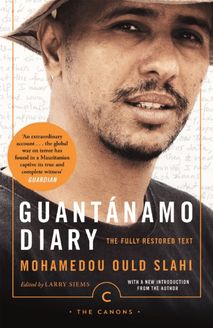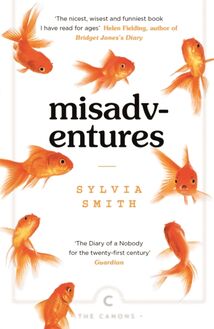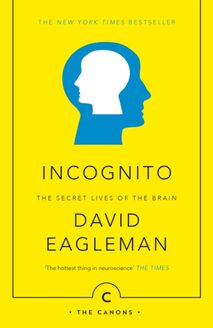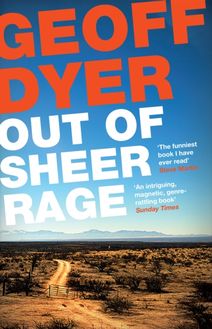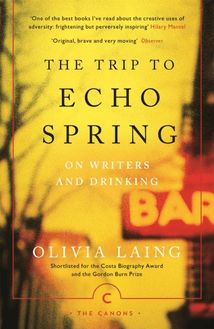-
 Univers
Univers
-
 Ebooks
Ebooks
-
 Livres audio
Livres audio
-
 Presse
Presse
-
 Podcasts
Podcasts
-
 BD
BD
-
 Documents
Documents
-
- Cours
- Révisions
- Ressources pédagogiques
- Sciences de l’éducation
- Manuels scolaires
- Langues
- Travaux de classe
- Annales de BEP
- Etudes supérieures
- Maternelle et primaire
- Fiches de lecture
- Orientation scolaire
- Méthodologie
- Corrigés de devoir
- Annales d’examens et concours
- Annales du bac
- Annales du brevet
- Rapports de stage
La lecture à portée de main
Vous pourrez modifier la taille du texte de cet ouvrage
Découvre YouScribe en t'inscrivant gratuitement
Je m'inscrisDécouvre YouScribe en t'inscrivant gratuitement
Je m'inscrisEn savoir plus
Vous pourrez modifier la taille du texte de cet ouvrage
En savoir plus

Description
Informations
| Publié par | Canongate Books |
| Date de parution | 01 mai 2014 |
| Nombre de lectures | 0 |
| EAN13 | 9781782114352 |
| Langue | English |
| Poids de l'ouvrage | 5 Mo |
Informations légales : prix de location à la page 0,0400€. Cette information est donnée uniquement à titre indicatif conformément à la législation en vigueur.
Extrait
Dame Margaret Drabble was born in Sheffield in 1939 and was educated at Newnham College, Cambridge. She is the author of twenty highly acclaimed novels. She has also written biographies, screenplays and was the editor of the Oxford Companion to English Literature . She was appointed CBE in 1980, and made DBE in the 2008 Honours list. She was also awarded the 2011 Golden PEN Award for a Lifetime’s Distinguished Service to Literature. She is married to the biographer Michael Holroyd.
Also by Margaret Drabble
FICTION
A Summer Bird-Cage The Garrick Year Jerusalem the Golden The Waterfall The Needle’s Eye London Consequences (group novel) The Realms of Gold The Ice Age The Middle Ground The Radiant Way A Natural Curiosity The Gates of Ivory The Witch of Exmoor The Peppered Moth The Seven Sisters The Red Queen The Sea Lady The Pure Gold Baby The Dark Flood Rises SHORT STORIES A Day in the Life of a Smiling Woman: The Collected Stories NON-FICTION Wordsworth (Literature in Perspective series) Arnold Bennett: A Biography For Queen and Country A Writer’s Britain The Oxford Companion to English Literature (editor) Angus Wilson: A Biography The Pattern in the Carpet
The Canons edition published in Great Britain in 2022 by Canongate Books canongate.co.uk First published in hardback in Great Britain in 1965 by Weidenfeld & Nicolson First published in paperback in 1968 by Penguin Books Ltd This digital edition first published in 2014 by Canongate Books Copyright © Margaret Drabble, 1965 The right of Margaret Drabble to be identified as the author of this work has been asserted by her in accordance with the Copyright, Designs and Patents Act 1988 British Library Cataloguing-in-Publication Data A catalogue record for this book is available on request from the British Library ISBN 978 1 83885 713 4 eISBN 978 1 78211 435 2
My career has always been marked by a strange mixture of confidence and cowardice: almost, one might say, made by it. Take, for instance, the first time I tried spending a night with a man in a hotel. I was nineteen at the time, an age appropriate for such adventures, and needless to say I was not married. I am still not married, a fact of some significance, but more of that later. The name of the boy, if I remember rightly, was Hamish. I do remember rightly. I really must try not to be deprecating. Confidence, not cowardice, is the part of myself which I admire, after all.
Hamish and I had just come down from Cambridge at the end of the Christmas term: we had conceived our plan well in advance, and had each informed our parents that term ended a day later than it actually did, knowing quite well that they would not be interested enough to check, nor sufficiently au fait to ascertain the value of their information if they did. So we arrived in London together in the late afternoon, and took a taxi from the station to our destined hotel. We had worked everything out, and had even booked our room, which would probably not have been necessary, as the hotel we had selected was one of those large central cheap-smart ones, specially designed for adventures such as ours. I was wearing a gold curtain ring on the relevant finger. We had decided to stick to Hamish’s own name, which, being Andrews, was unmemorable enough, and less confusing than having to think up a pseudonym. We were well educated, the two of us, in the pitfalls of such occasions, having both of us read at one time in our lives a good deal of cheap fiction, and indeed we both carried ourselves with considerable aplomb. We arrived, unloaded our suitably-labelled suitcases, and called at the desk for our key. It was here that I made my mistake. For some reason I was requested to sign the register: I now know that it is by no means customary for wives to sign hotel registers, and can only assume that I was made to do so because of the status of the hotel, or because I was hanging around guiltily waiting to be asked. Anyway, when I got to it, I signed it in my maiden name: Rosamund Stacey, I wrote, as large as can be, in my huge childish hand, underneath a neatly illegible Hamish Andrews. I did not even see what I had done until I handed it back to the girl, who looked at my signature, gave a sigh of irritation, and said, ‘Now then, what do you mean by this?’
She did not say this with amusement, or with venom, or with reprobation: but with a weary crossness. I was making work for her, I could see that at a glance: I was stopping the machinery, because I had accidentally told the truth. I had meant to lie, and she had expected me to lie, but for some deeply rooted Freudian reason I had forgotten to do so. While she was drawing Hamish’s attention to my error, I stood there overcome with a kind of bleak apologetic despair. I had not meant to make things difficult. Hamish got out of it as best he could, cracking a few jokes about the recentness of our wedding: she did not smile at them, but took them for what they were, and when he had finished she picked up the register and said,
‘Oh well, I’ll have to go and ask.’
Then she disappeared through a door at the back of her reception box, leaving Hamish and me side by side but not particularly looking at each other.
‘Oh hell,’ I said, after a while. ‘I’m so sorry, dearest, I just wasn’t thinking.’
‘I don’t suppose it matters,’ he said.
And of course it did not matter: after a couple of minutes the girl returned, expressionless as ever, without the register, and said that that was all right, and gave us our key. I suppose my name is still there. And its inscription there in all that suspect company is as misleading and hypocritical as everything else about me and my situation, for Hamish and I were not even sleeping together, though every day for a year or so we thought we might be about to. We took rooms in hotels and spent nights in each other’s colleges, partly for fun and partly because we liked each other’s company. In those days, at that age, such things seemed possible and permissible: and as I did them, I thought that I was creating love and the terms of love in my own way and in my own time. I did not realize the dreadful facts of life. I did not know that a pattern forms before we are aware of it, and that what we think we make becomes a rigid prison making us. In ignorance and innocence I built my own confines, and by the time I was old enough to know what I had done, there was no longer time to undo it.
When Hamish and I loved each other for a whole year without making love, I did not realize that I had set the mould of my whole life. One could find endless reasons for our abstinence – fear, virtue, ignorance, perversion – but the fact remains that the Hamish pattern was to be endlessly repeated, and with increasing velocity and lack of depth, so that eventually the idea of love ended in me almost the day that it began. Nothing succeeds, they say, like success, and certainly nothing fails like failure. I was successful in my work, so I suppose other successes were too much to hope for. I can remember Hamish well enough: though I cannot now quite recollect the events of our parting. It happened, that is all. Anyway, it is of no interest, except as an example of my incompetence, both practical and emotional. My attempts at anything other than my work have always been abortive. My attempt at abortion, for instance, must be a quite classic illustration of something: of myself, if of nothing else.
When, some years after the Hamish episode, I found that I was pregnant, I went through slightly more than the usual degrees of incredulity and shock, for reasons which I doubtless shall be unable to restrain myself from recounting: there was nobody to tell, nobody to ask, so I was obliged once more to fall back on the dimly reported experiences of friends and information I had gleaned through the years from cheap fiction. I never at any point had any intention of going to a doctor: I had not been ill for so many years that I was unaware even of the procedure for visiting one, and felt that even if I did get round to it I would be reprimanded like a schoolchild for my state. I did not feel much in the mood for reproof. So I kept it to myself, and thought that I would try at least to deal with it by myself. It took me some time to summon up the courage: I sat for a whole day in the British Museum, damp with fear, staring blankly at the open pages of Samuel Daniel, and thinking about gin. I knew vaguely about gin, that it was supposed to do something or other to the womb, quinine or something I believe, and that combined with a hot bath it sometimes works, so I decided that other girls had gone through with it, so why not me. One might be lucky. I had no idea how much gin one was supposed to consume, but I had a nasty feeling that it was a whole bottle: the prospect of this upset me both physically and financially. I grudged the thought of two pounds on a bottle of gin, just to make myself ill. However, I couldn’t pretend that I couldn’t afford it, and it was relatively cheap compared with other methods, so I grimly turned the pages of Daniel and decided that I would give it a try. As I turned the pages, a very handy image, thesis-wise, caught my attention, and I noted it down. Lucky in work, unlucky in love. Love is of man’s life a thing apart, ’tis woman’s whole existence, as Byron mistakenly remarked.
On the way home I called in at Unwin’s and bought a bottle of gin. As the man handed it to me over the counter, wrapped in its white tissue paper, I wished that I were purchasing it for some more festive reason. I walked down Marylebone High Street with it, looking in the shop windows and feeling rather as though I were looking my last on the expensive vegetables and the chocolate rabbits and the cosy antiques. I would not have minded looking my last on the maternity clothes: it was unfortunate, in view of subsequent events, that the region I then inhabited was positively crammed with maternity sho
-
 Univers
Univers
-
 Ebooks
Ebooks
-
 Livres audio
Livres audio
-
 Presse
Presse
-
 Podcasts
Podcasts
-
 BD
BD
-
 Documents
Documents
-
Jeunesse
-
Littérature
-
Ressources professionnelles
-
Santé et bien-être
-
Savoirs
-
Education
-
Loisirs et hobbies
-
Art, musique et cinéma
-
Actualité et débat de société
-
Jeunesse
-
Littérature
-
Ressources professionnelles
-
Santé et bien-être
-
Savoirs
-
Education
-
Loisirs et hobbies
-
Art, musique et cinéma
-
Actualité et débat de société
-
Actualités
-
Lifestyle
-
Presse jeunesse
-
Presse professionnelle
-
Pratique
-
Presse sportive
-
Presse internationale
-
Culture & Médias
-
Action et Aventures
-
Science-fiction et Fantasy
-
Société
-
Jeunesse
-
Littérature
-
Ressources professionnelles
-
Santé et bien-être
-
Savoirs
-
Education
-
Loisirs et hobbies
-
Art, musique et cinéma
-
Actualité et débat de société
- Cours
- Révisions
- Ressources pédagogiques
- Sciences de l’éducation
- Manuels scolaires
- Langues
- Travaux de classe
- Annales de BEP
- Etudes supérieures
- Maternelle et primaire
- Fiches de lecture
- Orientation scolaire
- Méthodologie
- Corrigés de devoir
- Annales d’examens et concours
- Annales du bac
- Annales du brevet
- Rapports de stage
